multiverse

Shermer and Carroll discuss: the measurement problem in physics • wave functions • entanglement • fields • interactions • scale • symmetry • gauge theory • phases • matter • atoms • time • double-slit experiment • superposition • directionality in nature • the multiverse • known unknowables • Is there a place for God in scientific epistemology?

Shermer and Schwitzgebel discuss: bizarreness • skepticism • consciousness • virtual reality • AI, Turing Test, sentience, existential threat • idealism, materialism • ultimate nature of reality • solipsism • evidence for the existence of an external world • computer simulations hypothesis • mind-body problem • truths: external, internal, objective, subjective • mind-altering drugs • entropy • causality • infinity • immortality • multiverses • why there is something rather than nothing.
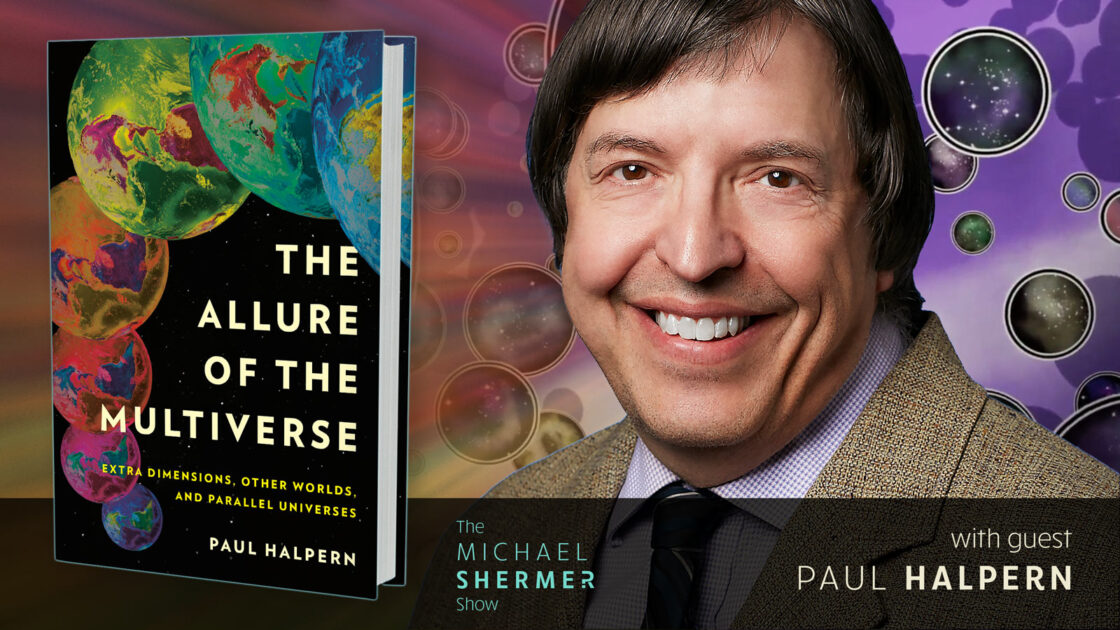
Shermer and Halpern discuss: definitions of universe and types of multiverses • Is the multiverse science, metaphysics, or faith? • theists claim the “multiverse” is just handwaving around the God answer • many worlds interpretation of quantum mechanics? • inflationary and Darwinian cosmology • infinity and eternity • multiple dimensions • string theory • cyclical universes • Big Bounce • Anthropic Principle (weak, strong, participatory) • time travel • sliding doors, contingency, and the multiverse.
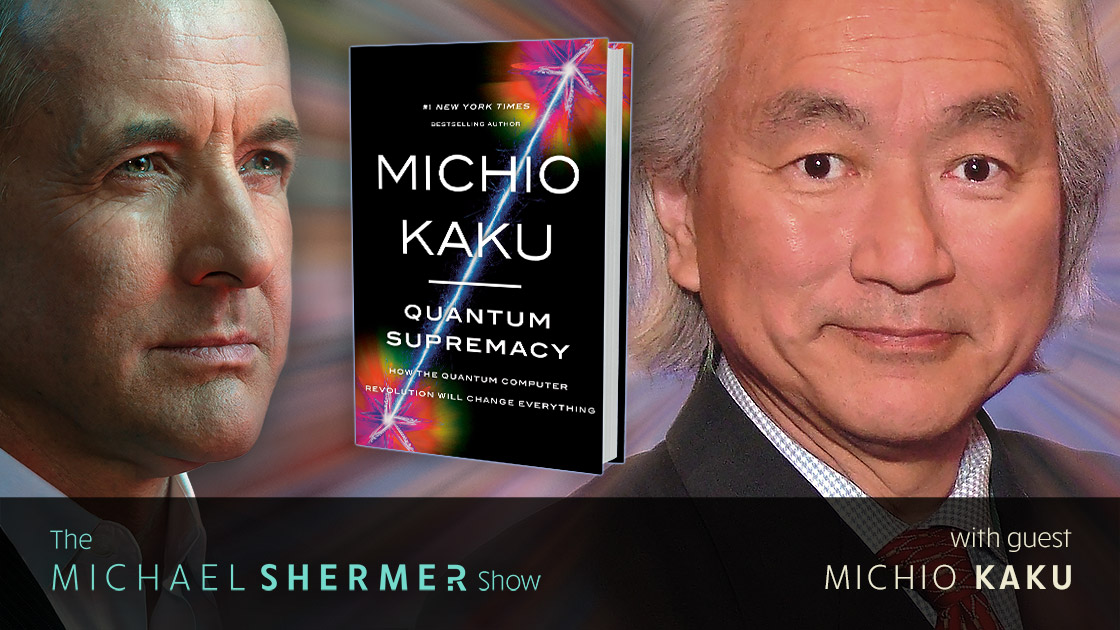
Shermer and Kaku discuss: AI, GPT, sentience/consciousness, the end of humanity • decoherence • Uncertainty Principle • multiverse, parallel universes, and Many Worlds hypothesis • Einstein • the evolution of the computer • the origin of life • climate change solutions • feeding 10 billion people • gene editing • curing cancer • immortality • simulating the universe • UAPs and UFOs • chaos theory and indeterminism • Are we living in a simulation? • Is there a God? •…
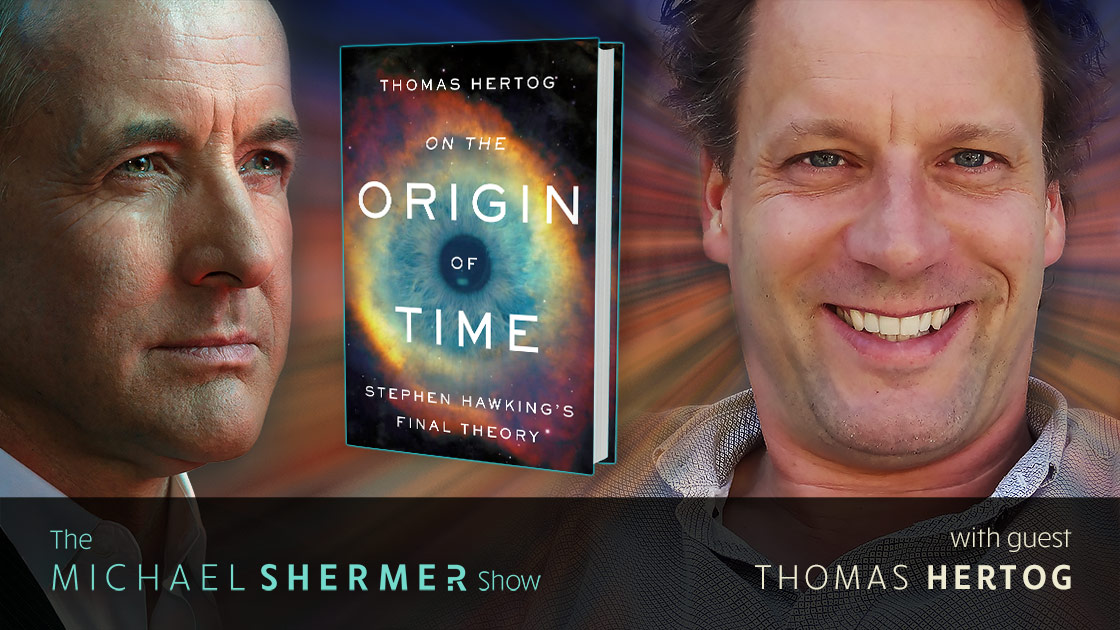
Shermer and Hertog discuss: what it was like working with Stephen Hawking • Darwinian model of cosmology • time • What banged the Big Bang? • cosmic inflation and multiple universes • how to reconcile Einstein’s relativity theory of gravity and quantum theory • Hawking’s no-boundary theory • why the universe appears designed • Feynman’s sum over histories approach to quantum physics • Is there purpose in the cosmos? • Why is there something rather than nothing?

Shermer and Päs discuss: monism vs. dualism • What is time? • What is a field? • Is math all there is? Is math universal? • the double-slit experiment • superposition • metaphors in science • limitations of models and theories of reality • limitations of analogies between western physics and eastern mysticism • What banged the Big Bang? • Are we living in a matrix? • the Second Laws of Thermodynamics and directionality in nature • Model Dependent Realism • string theory, the multiverse, consciousness, the origin of the universe, and why…
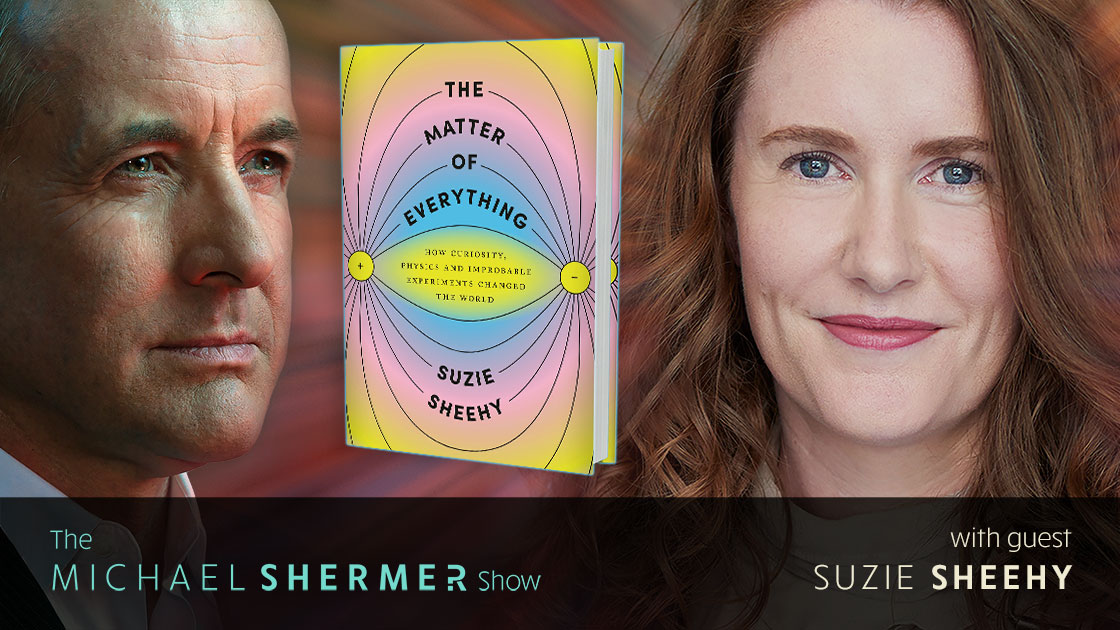
Shermer and Sheehy discuss: what it’s like being a female physicist in a mostly male field • Does science progress through falsification, confirmation, consensus, or Bayesian reasoning? • atoms, light, Higgs Boson, time, gravity, dark energy, dark matter, string theory, radioactivity • Gold Foil Experiment • cloud chambers • particle accelerators • splitting the atom • Is there a place for God in scientific epistemology? • Is math all there is? Is math universal? • other universes, dimensions, and the multiverse.

Michael Shermer speaks with quantum physicist, Jim Al-Khalili, who reveals how 8 lessons from the heart of science can help us all get the most out of our lives.
Mark W. Moffett remind us that breakthroughs in science often come about by exploring points of similarity between things that are normally seen as very different. PLUS: Michael Shermer speaks with quantum physicist, Jim Al-Khalili, who reveals how 8 lessons from the heart of science can help us all get the most out of our lives. PLUS: In SRC Report PCIS-005, we take a look at Conspiracy Theory Endorsement by Generation.
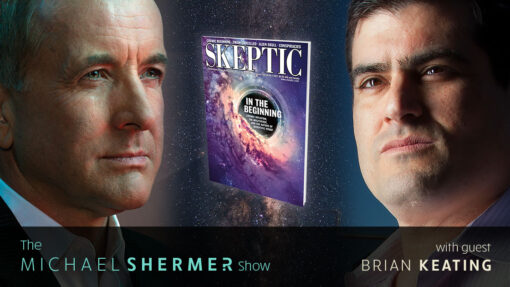
Shermer and Keating discuss: cosmology • Intelligent Design • “fine-tuned” universe • multiverse • God • Intelligent Design • laws of nature • origin of the universe • Big Bang • something rather than nothing • inflationary cosmology • quantum gravity • Steady State theory • Popperian falsification • consensus science • string theory • shape is the universe? Open, closed, or flat? • dark energy • dark matter • time and infinity.
In episode 175 of The Michael Shermer Show, Michael speaks with Brian Keating about How it All Began: Cosmic Inflation, the Multiverse, and the Nature of Scientific Proof. Plus, we present a review of Julia Galef’s book The Scout Mindset: Why Some People See Things Clearly and Others Don’t.
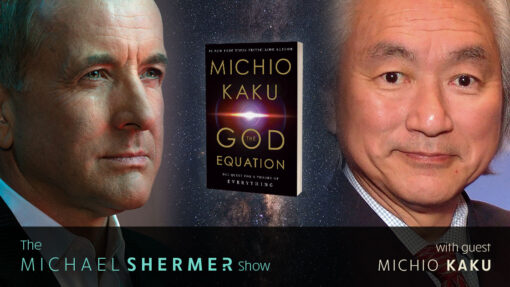
Synthesizing relativity and quantum theory would be the crowning achievement of science, a profound merging of all the forces of nature into one beautiful, magnificent equation to unlock the deepest mysteries in science. In this episode, Michael Shermer speaks with professor of theoretical physics Michio Kaku about: the Big Bang, black holes, worm holes, the multiverse, time travel, dark energy and dark matter, gravity, string theory, ETIs, meaning, and God.
Michael Shermer speaks with professor of theoretical physics Michio Kaku about The Quest for a Theory of Everything. PLUS: From now through April 10, 2021 (5 days only) all print and digital back issues Skeptic magazine are on sale for only $1.99 each!
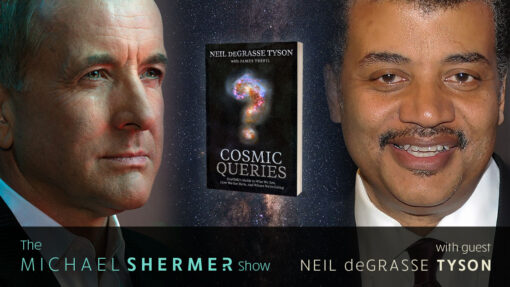
In episode 164 of The Michael Shermer Show, Dr. Shermer speaks with Neil deGrasse Tyson about his new book Cosmic Queries: StarTalk’s Guide to Who We Are, How We Got Here, and Where We’re Going. Enjoy this thought-provoking conversation on life, the universe, and everything, as Neil deGrasse Tyson tackles the world’s most important philosophical questions about the universe with wit, wisdom, and cutting-edge science.
In episode 164 of The Michael Shermer Show, Dr. Shermer speaks with Neil deGrasse Tyson about his new book Cosmic Queries: StarTalk’s Guide to Who We Are, How We Got Here, and Where We’re Going. Enjoy this thought-provoking conversation on life, the universe, and everything, as Neil deGrasse Tyson tackles the world’s most important philosophical questions about the universe with wit, wisdom, and cutting-edge science.
In Science Salon # 89 Michael Shermer speaks with Richard Dawkins about his new book Outgrowing God. Dawkins explains how the natural world arose without a designer and challenges head-on some of the most basic assumptions made by the world’s religions. PLUS: Is the statement “We are living in a post-truth world” true? If your answer is “yes” then the answer is “no” because you’ve just evaluated the statement in an evidentiary manner, so evidence still matters and facts still…
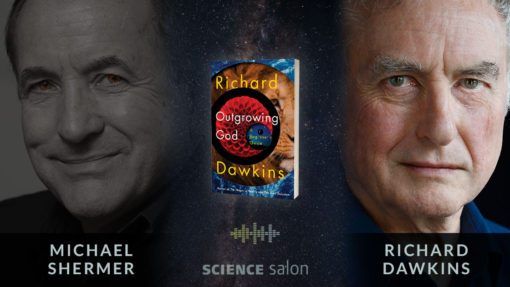
Richard Dawkins explains how the natural world arose without a designer — the improbability and beauty of the “bottom-up programming” that engineers an embryo or a flock of starlings — and challenges head-on some of the most basic assumptions made by the world’s religions.
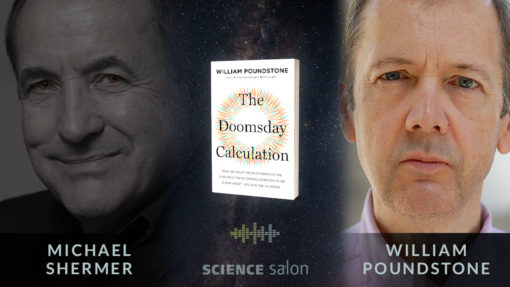
When will the world end? How likely is it that intelligent extraterrestrial life exists? Are we living in a simulation like the Matrix? Is our universe but one in a multiverse? How does Warren Buffett continue to beat the stock market? How much longer will your romance last? In this wide ranging conversation with Michael Shermer, science writer William Poundstone answers these questions, and more.
When will the world end? How likely is it that intelligent extraterrestrial life exists? Are we living in a simulation like the Matrix? Is our universe but one in a multiverse? How does Warren Buffett continue to beat the stock market? How much longer will your romance last? In Science Salon # 76 — a wide ranging conversation with Michael Shermer — science writer William Poundstone answers these questions and more. PLUS Gabriel Andrade examines the incest taboo and asks:…
In this issue: The latest issue of Skeptic magazine (24.2) launches today in print and digital editions; PLUS Science Salon # 70 with cosmologist and inventor of the BICEP (Background Imaging of Cosmic Extragalactic Polarization) experiment Dr. Brian Keating.
NEXT →





















